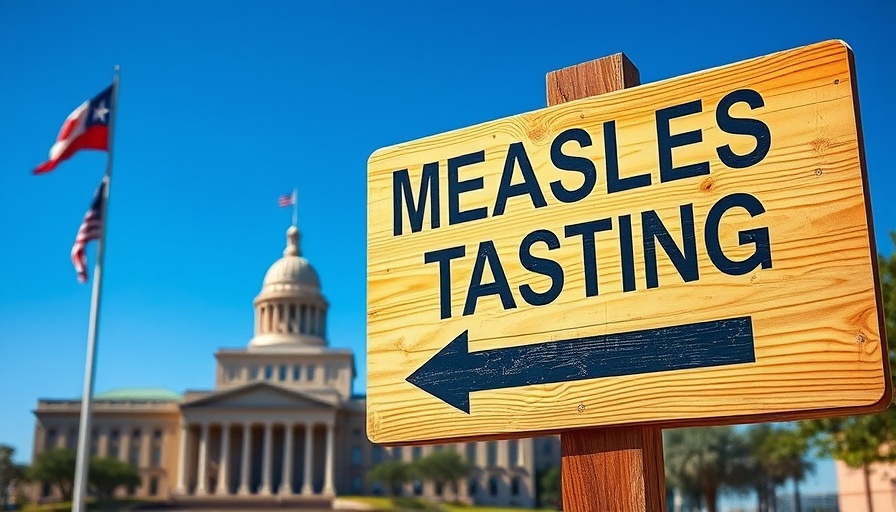
Texas Under Siege by Measles: A Wake-Up Call for Health
Texas is currently grappling with a disturbing measles outbreak, marking the largest in the nation in over 20 years. Over 700 cases have been reported, causing widespread concern and resulting in the hospitalization of numerous children, with a tragic two fatalities among the unvaccinated. In response to this crisis, state lawmakers are moving forward with a bill that would simplify the process for parents to opt out of mandatory vaccinations for their children.
Examining the Impact of Vaccine Exemptions
Supporters of the bill argue that it streamlines the exemption process, allowing families to access required forms directly online instead of navigating bureaucratic channels. This change is presented as a matter of personal freedom, permitting families to make decisions based on conscience or religious beliefs. However, critics caution that reducing restrictions on vaccine exemptions could exacerbate public health risks, leading to increased illness and death. Rekha Lakshmanan from the Immunization Project emphasized the potential consequences of such legislation; stating that it opens the door to preventable diseases and puts lives at risk.
A National Epidemic: Vaccine Hesitancy on the Rise
This problem isn't isolated to Texas. Across the country, there is a visible trend of declining vaccination rates among kindergarteners since the COVID-19 pandemic, with the current percentage sitting at 92.7%, down from 95% pre-pandemic. The rise in vaccine exemptions has reached alarming levels, reflecting a broader movement across conservative states questioning vaccination mandates altogether.
Health Implications and Community Responsibility
As the measles outbreak unfolds, the implications for community health are profound. Measles is highly contagious and can lead to severe complications. The continuous rollback of vaccination requirements puts not only unvaccinated individuals at risk but also creates a greater vulnerability within the community at large. Vaccination remains a critical component of public health, protecting the community by ensuring herd immunity, which is essential to safeguarding those who cannot be vaccinated for legitimate medical reasons.
Understanding the Historical Context of Vaccine Laws
The current landscape of vaccine exemptions is a product of long-standing debates around personal freedom versus public health responsibility. The historical context shows a tug-of-war between individual liberties and societal safety, a dynamic that has gained momentum with the uptick of misinformation and distrust surrounding vaccines. It is vital for communities to engage in informed discussions about the importance of vaccinations in protecting vulnerable populations.
Taking Action: What Can Communities Do?
Communities must work toward reinforcing the value of vaccination and educating families about its importance. Initiatives could include local workshops that provide accurate information about vaccines, addressing myths while promoting health and wellness. Health professionals can lead these discussions, sharing insights into how immunization protects not just individuals but whole communities. It's crucial for local leaders to advocate for public wellness instead of enabling measures that may jeopardize it.
Conclusion: The Path Forward for Texas and Beyond
As Texas navigates this concerning measles outbreak, the ongoing discussions about vaccine exemptions serve as a pivotal moment for public health dialogue. It is a reminder that community health is a collective responsibility, necessitating informed conversations about the value of vaccinations. By prioritizing health education and engagement, communities can foster a culture of wellness that extends beyond individual choice.
 Add Row
Add Row  Add
Add 




 Add Row
Add Row  Add
Add 

Write A Comment